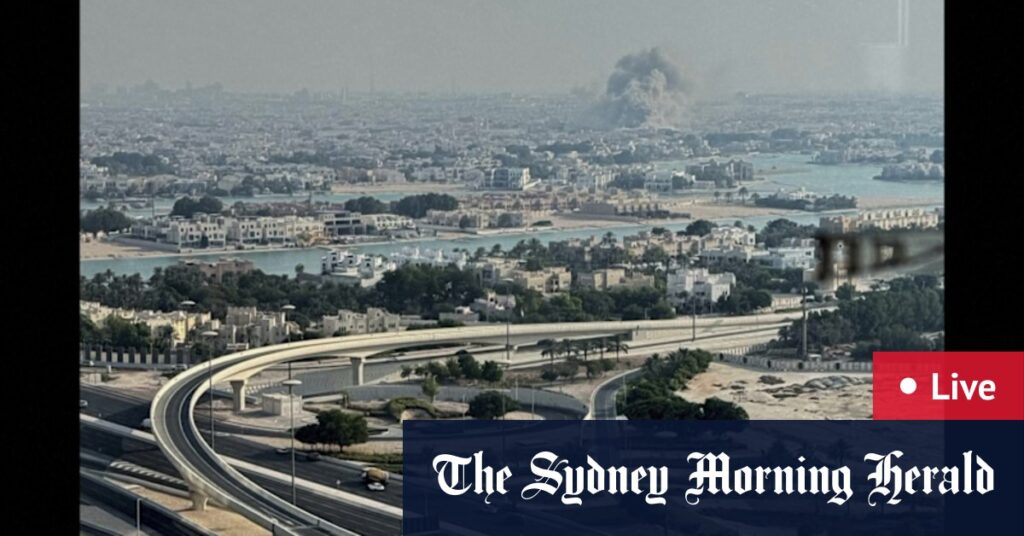
Prime Minister Anthony Albanese is set to visit the Solomon Islands, marking a significant diplomatic engagement as tensions rise over global economic policies and domestic job cuts in Australia. This visit comes at a time when the US Supreme Court has announced it will review the legality of former President Donald Trump’s tariffs, a decision that could have widespread financial and political repercussions.
The US Supreme Court has decided to expedite its review of the tariffs, with arguments scheduled for the first week of November. This accelerated timeline indicates the court’s intent to resolve the issue swiftly. Trump’s tariffs, which remain in effect despite a federal appeals court ruling that he overstepped his authority, include the controversial “Liberation Day” tariffs. These impose levies ranging from 10% to 50% on most US imports, with Australia facing the lowest rate of 10%.
Implications of US Tariff Review
The tariffs in question also affect Canada, Mexico, and China, ostensibly to combat fentanyl trafficking. The case arises from lawsuits by Democratic-led states and small businesses, highlighting the global economic stakes involved. The outcome of this case could reshape international trade dynamics and influence Australia’s economic strategies.
“The tariffs remain in place for now, even though a federal appeals court ruled that Trump exceeded his authority by imposing them.”
Meanwhile, the National Australia Bank (NAB) has announced it will lay off 410 workers as part of a restructuring of its technology and enterprise operations division. This decision is part of a broader trend of job cuts within Australia’s banking sector, following ANZ Bank’s recent announcement of 3,500 redundancies.
NAB Job Cuts and Sector-Wide Impact
The Finance Sector Union (FSU) has criticized NAB’s restructuring, which affects 728 workers, although some will be reassigned rather than laid off. The net result is 410 redundancies, with 127 new roles being established in India and Vietnam to perform work previously done in Australia.
“Two banks in two days slashing jobs, it’s shameful. This isn’t one rogue bank, it’s the whole sector driving the same agenda at the expense of workers and communities,” FSU national president Wendy Streets said.
NAB’s spokesperson defended the move, citing the benefits of a global workforce, such as leveraging time zone differences for quicker customer service. This restructuring reflects the bank’s response to a constantly evolving business environment, aiming to optimize customer experience through strategic workforce placement.
Australia’s COP Conference Bid and Regional Diplomacy
In parallel, Australia’s bid to host the next COP climate change conference faces challenges, with Türkiye emerging as a rival contender. Foreign Minister Penny Wong acknowledges the difficulties but remains committed to elevating Pacific voices by hosting the event in South Australia if successful.
“Türkiye is not backing down. They made that clear publicly, including through the president,” Wong told ABC TV.
Prime Minister Albanese plans to meet with Turkish President Recep Tayyip Erdoğan to negotiate a resolution. Failure to reach an agreement could result in the conference being held at the United Nations Framework Convention on Climate Change headquarters in Germany.
International and Domestic Challenges
Albanese’s visit to the Solomon Islands also involves addressing the delay in signing a $500 million economic and security deal with Vanuatu. The agreement faced resistance during his recent visit to the Pacific nation, with concerns about potential restrictions on critical infrastructure funding from other countries.
Foreign Minister Wong emphasized the importance of resolving these issues while ensuring the agreement serves both Australian and regional interests. This diplomatic engagement underscores Australia’s strategic focus on strengthening ties within the Pacific region amid global economic uncertainties.
As Albanese navigates these complex international and domestic challenges, his leadership will be crucial in shaping Australia’s economic and diplomatic landscape in the coming months.






